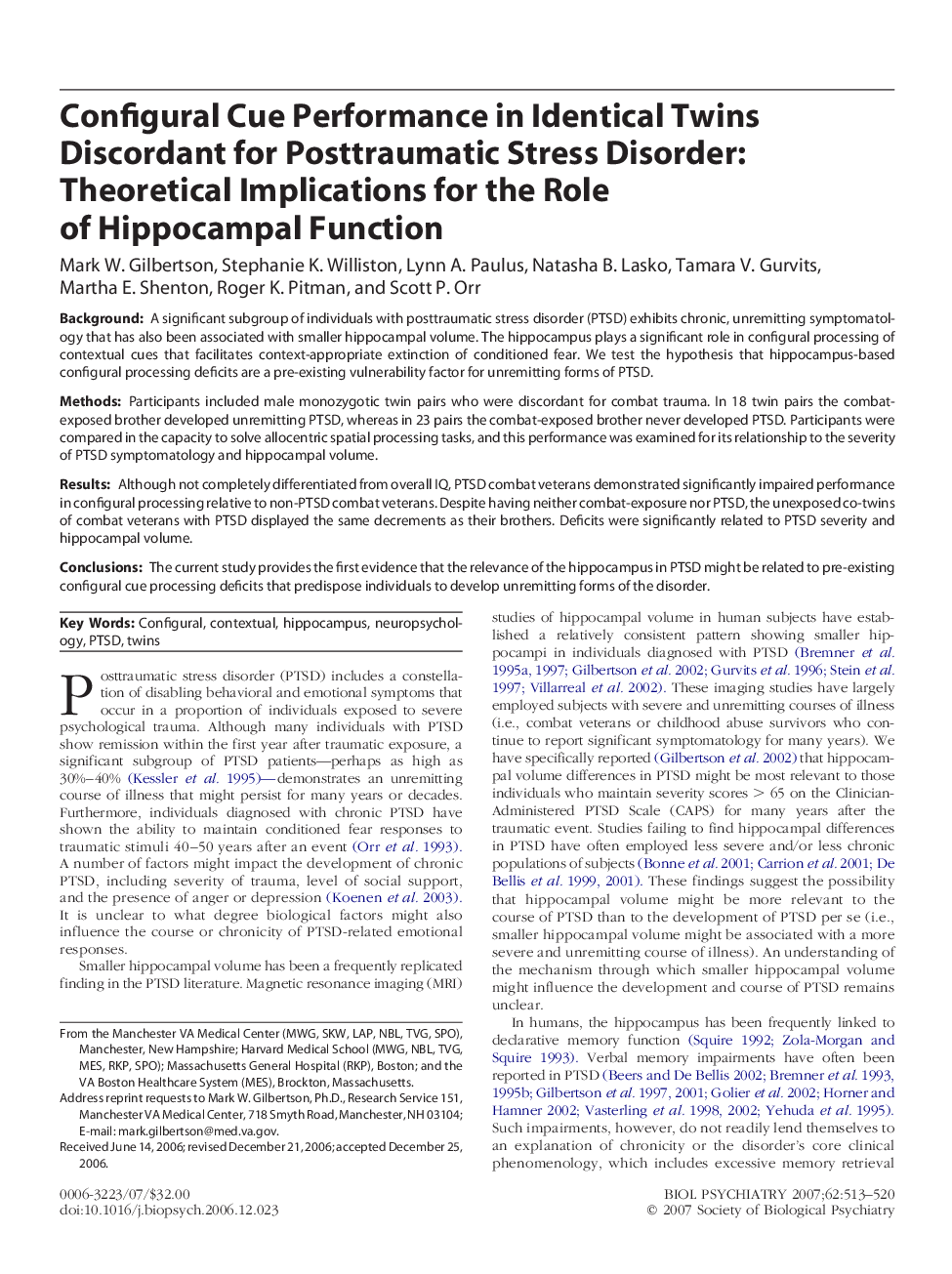| کد مقاله | کد نشریه | سال انتشار | مقاله انگلیسی | نسخه تمام متن |
|---|---|---|---|---|
| 4180296 | 1276597 | 2007 | 8 صفحه PDF | دانلود رایگان |

BackgroundA significant subgroup of individuals with posttraumatic stress disorder (PTSD) exhibits chronic, unremitting symptomatology that has also been associated with smaller hippocampal volume. The hippocampus plays a significant role in configural processing of contextual cues that facilitates context-appropriate extinction of conditioned fear. We test the hypothesis that hippocampus-based configural processing deficits are a pre-existing vulnerability factor for unremitting forms of PTSD.MethodsParticipants included male monozygotic twin pairs who were discordant for combat trauma. In 18 twin pairs the combat-exposed brother developed unremitting PTSD, whereas in 23 pairs the combat-exposed brother never developed PTSD. Participants were compared in the capacity to solve allocentric spatial processing tasks, and this performance was examined for its relationship to the severity of PTSD symptomatology and hippocampal volume.ResultsAlthough not completely differentiated from overall IQ, PTSD combat veterans demonstrated significantly impaired performance in configural processing relative to non-PTSD combat veterans. Despite having neither combat-exposure nor PTSD, the unexposed co-twins of combat veterans with PTSD displayed the same decrements as their brothers. Deficits were significantly related to PTSD severity and hippocampal volume.ConclusionsThe current study provides the first evidence that the relevance of the hippocampus in PTSD might be related to pre-existing configural cue processing deficits that predispose individuals to develop unremitting forms of the disorder.
Journal: Biological Psychiatry - Volume 62, Issue 5, 1 September 2007, Pages 513–520